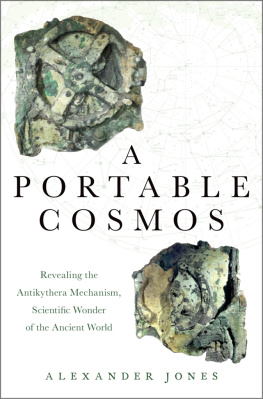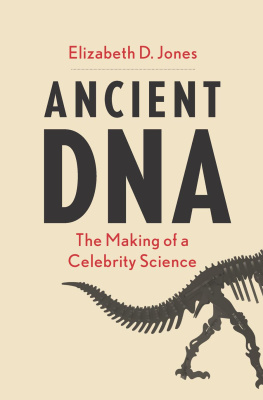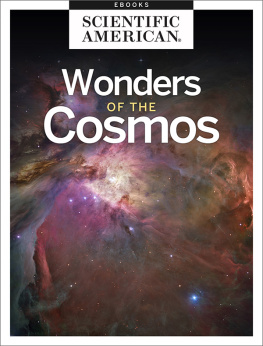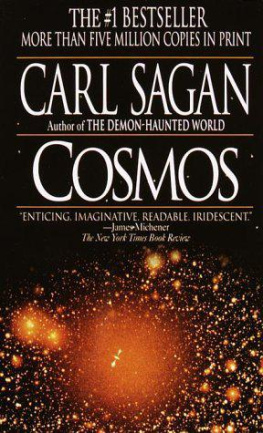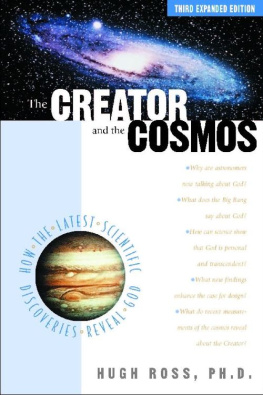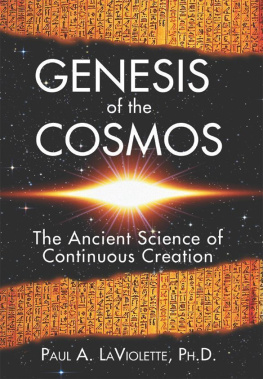A Portable Cosmos

Oxford University Press is a department of the University of Oxford. It furthers the Universitys objective of excellence in research, scholarship, and education by publishing worldwide. Oxford is a registered trade mark of Oxford University Press in the UK and certain other countries.
Published in the United States of America by Oxford University Press
198 Madison Avenue, New York, NY 10016, United States of America.
Oxford University Press 2017
All rights reserved. No part of this publication may be reproduced, stored in a retrieval system, or transmitted, in any form or by any means, without the prior permission in writing of Oxford University Press, or as expressly permitted by law, by license, or under terms agreed with the appropriate reproduction rights organization. Inquiries concerning reproduction outside the scope of the above should be sent to the Rights Department, Oxford University Press, at the address above.
You must not circulate this work in any other form and you must impose this same condition on any acquirer.
Library of Congress Cataloging-in-Publication Data
Names: Jones, Alexander, author.
Title: A portable cosmos: revealing the Antikythera Mechanism, scientific wonder of the ancient world / Alexander Jones.
Description: New York, NY: Oxford University Press, 2017.
Identifiers: LCCN 2016045108 | ISBN 9780199739349 (hardback) |eISBN 9780190618599
Subjects: LCSH: Antikythera mechanism (Ancient calculator) | Astronomy, AncientGreece. | Calendar, Greek. | ScienceGreeceHistoryTo 1500. | TechnologyGreeceHistoryTo 1500. | GreeceIntellectual lifeTo 146 B.C. | GreeceAntiquities. | Antikythera Island (Greece)Antiquities. | BISAC: HISTORY / Ancient / Greece.
Classification: LCC QB107 .J65 2017 | DDC 681.1/11dc23
LC record available at https://lccn.loc.gov/2016045108
For Elizabeth and Martin Jones
Contents
In the name of his master Theoderic, king of the Ostrogoths, Cassiodorus wrote a letter to the philosopher Boethius about AD 506, commissioning him to arrange to have two time-telling devices made, a sundial and a water clock; they were to be a present to dazzle Gundobad, the king of the Burgundians. A rhetorical manner was expected in such official correspondence, and Cassiodorus expands floridly on the astonishing works of which the mechanical art is capable: it can raise water, move fire, cause the organ to make music, defend cities, drain flooded buildings, and fashion sounding effigies of singing birds and hissing snakes. Nay, it even creates a means of imitating the heavens with no risk of impiety, through something called the sphere of Archimedes, in which the mechanical art
has made a second Sun take its course; it has fashioned another zodiacal circle by human cogitation; it has shown the Moon restored from its eclipse by the light of the artit has set in revolution a little machine, pregnant with the cosmos, a portable sky, a compendium of all that is, a mirror of nature, in the image of the ether in its unimaginable mobility.What a thing it is for a human being to make this thing, which can be a marvel even to understand!
Perhaps a still greater marvel is that a specimen of such a portable cosmos, which Cassiodorus had probably read about only in books, was found a little over a century ago off the small Greek island of Antikythera, where it had been lost 2000 years ago in a shipwreck. It may now be seen on public display in the National Archaeological Museum in Athens, bearing the inventory number X 15087.
During the first half century following its discovery, hardly anyone even in the scholarly world had heard of the Antikythera Mechanism. News reports, magazine articles, and television documentaries have now rendered these tiny fragments of bronze plate, bristling with gears and inscribed texts, one of the most familiar artifacts from the ancient Greek world. Much of this recent attention has focused on the technologies applied to studying the Mechanisms fragmentary remains, and on the personalities of the researchers. By now the enigmas of what it did and how it worked are largely solved. Yet the impression is still widely held that the Mechanism is a thing mysteriously foreign to Greco-Roman civilization as we know it, echoing Derek de Solla Prices 1959 statement that from all we know of science and technology in the Hellenistic age [late fourth to late first centuries BC] we should have felt that such a device could not exist.
I hope that this book will convince the reader that this impression is false. The Mechanism does indeed represent a level of technology exceeding anything else of the kind for which we have either physical remains or detailed descriptions from antiquity, but the devices it employed were a plausible extension of simpler inventions that we do know about. This technology was applied to displaying a profusion of astronomical and time-related functions, all of which were grounded in ancient Greek science. They would, with a little guidance from the Mechanisms operator, have been meaningful to an educated layman of the day, because they connected in diverse ways with Hellenistic society and with the prevailing understanding of cosmology and the physical environment. Changing one word in the title of Prices classic monograph on the Mechanism, Gears from the Greeks, we could fairly describe the Mechanism as Gears for the Greeks.
The story of how the Mechanism was found and how we have come to know as much as we do about it is told in the first two chapters of this book. We would not have had this singular object to study had it not been for repeated instances of foresight, persistence, and luck, starting with a team of sponge divers chance discovery of an ancient shipwreck in a part of the sea where they would not normally have been working, and the vision of a financially straitened government to fund an unprecedented undersea salvage operation, and to continue it well after the pace of big finds had slowed down. The investigation of the shattered and corroded fragments was a gradual, interdisciplinary process, involving the efforts of archeologists, historians, scientists, and technicians, and culminating by late 2006 in a reconstruction of much of its appearance and workings. This reconstruction was supported by extensive evidence and internal consistency, and, with very slight modifications, it has earned the acceptance of the entire community of researchers on the Mechanism.
. The book closes with a tentative exploration of the broader tradition of astronomical mechanisms in antiquity and the impact they may have had on ancient thought.
A prominent theme of my book is the public face of Greek astronomy in the Hellenistic period: the numerous ways in which specialists and popularizers sought to make the science visible, intelligible, and relevant to the layman. Following their example, I have tried to explain the astronomy and technology behind the Mechanism by using a minimum of specialized jargon and assuming no more than grade-school science. The central chapters on the Mechanisms displays and gearwork are more thematic than cumulative, and it should not be necessary for the reader to absorb the more technical discussions in full detail in order to follow my main lines of argument. A glossary at the end provides brief explanations of key terms.
Fruitful work continues to be done on many aspects of the Mechanism, but with respect to the largest questions we probably now have learned what we

